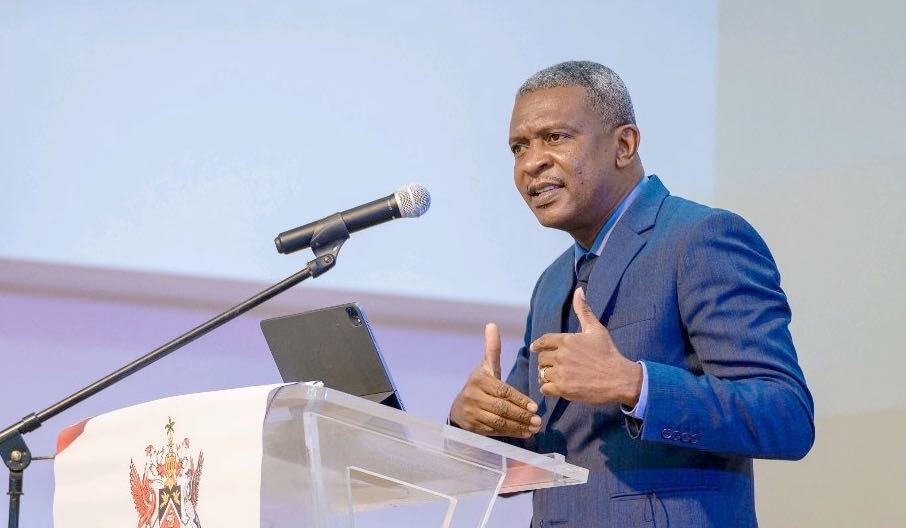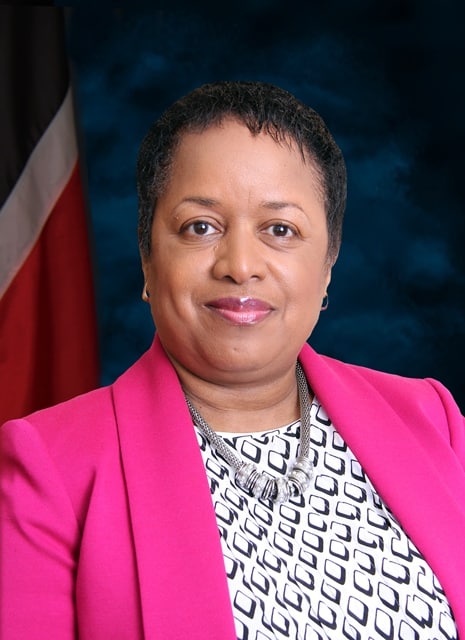
Digital Transformation Minister Hassel Bacchus.
BitDepth 1365 for August 01, 2022
The problem with public service technology adoption is a governance problem.
To truly understand the challenge, it’s important to consider how Trinidad and Tobago is governed.
Architecture
A political party, like a business, functions like a living organism, mobilizing around its reason for being.
For living creatures, it is the continuation of life. For business, survival is defined by profitability. For a political party, it’s acquiring a majority of votes.
As with living creatures, this is not a hard line.
For humans, there is Maslow’s hierarchy of needs, which codified a scale of desires beyond base survival reaching into the underpinnings of civil society.
A party in power has two responsibilities, to govern the country profitably and to ensure its continuance in power.
To ensure that there is balance between these often divergent ambitions, the practice of governance is filtered through the public service; a permanent institution that’s expected to offer apolitical advice on the proposals of government and to execute its programmes.
That process, as inherited from this country’s colonial overlords, has often been constrained by bureaucratic process, intended to provide checks and balances albeit with little publicly visible transparency and accountability.
By the second oil boom – between 1999 and 2008 – impatience with public service delays in execution and the perception of a stalled bureaucracy led to the creation of quasi-government agencies that existed outside ministries and a rise in external consultants the effectively replaced the role of senior public servants.
Employment
Working as a public servant has long held the allure of tenure. There was little expectation of job satisfaction, and advancement was measured in decades, and usually unrelated to job performance but the civil service was a lifelong career.
Unsurprisingly, the government is the largest single employer in the country.
Every effort at transforming the public service has resulted in total defeat while political interference has increased.
Digital transformation promises greater efficiency, empowering fewer people to do more work with more accountability for work delivery. This is a dramatic departure in thinking from the status quo of the public service and has proven largely unwelcome.
Tenure
Any serious digital transformation project will take years, perhaps even a decade to complete. The challenge facing the government in digitalizing the public sector isn’t that different from the undertaking create the Point Lisas Industrial Estate.
But that happened under the marathon run of the PNM, between 1962 and 1986. Since then, no government has been guaranteed anything beyond the five-year term to which they have been elected, which has resulted in a continuing emphasis on short and medium term project design.
Five years in office is actually just three. The first year is given over to settling in, and the last year sells the electorate on the value of the party’s incumbency.
To achieve long-term transformation goals, these projects should, with the agreement of the opposition, be moved out of active government to become true public service projects with budgets and objectives that are separated from the immediacy of political expediency.
The violently adversarial relationship of both major parties, the quiet disinterest of the public service and the idea of permanent secretaries taking the kudos for transformation make that possibility remote.
Executive will
No government will say that major improvements in accountability and transparency are undesirable. A minister will never say no to digital transformation projects. The word no invites the question, why?
You will, instead, hear verbose and vague plans including the opening of community centres with WiFi.
A government that doesn’t want to do something has many words, most of them populated with an impressive number of syllables, to achieve the same outcome.
In her speech at AMCHAM’s THIS conference in July, Public Administration Minister Allyson West asked AmCham to explain its requests for reliefs required for the development of a digital economy.
Should that be read as an acknowledgement that her ministry has no resources available for evaluating these proposals in the context of government project support?
That particular speech offered a masterclass in acknowledging problems, pointing to stunning future, implying that a great effort was underway while identifying not a single plan that might have an identifiable impact on the electorate.
Is it possible to go on about citizen engagement when almost every public facing arm of government seems committed to customer contempt?
The lack of enthusiasm of successive government for the proclamation of procurement legislation (eventually hobbled into acceptable form), legislation required for electronic payments within the government and any technology initiative that improved public scrutiny of governance will be explained by legal diligence and care.
TTConnect is in its third week of severely limited functionality. There is no explanation of the issues that have led to the collapse of the government’s sole arm of digital delivery.
Is any minister willing to step forward to explain why, after 30 months, an international vaccination certificate issued by this country only has covid-19 jabs listed on it?
How many different silos do the health records of this country’s citizens inhabit?
Any TT government can execute with dispatch. When that isn’t happening, wheels are not just going without grease, they are being quietly clotted into submission.
When it comes to technology projects, there are businesses that the government clearly wants to work with and others that they quietly sideline or ceaselessly frustrate through indifference or outright disinterestI exop.
The scandalously underfunded Digital Transformation Ministry will receive a development loan of US$120 million from CAF, the Development Bank of Latin America, but has cleverly married its connectivity goals with the Telecommunications Authority.
TATT has been dipping into its multi-million dollar Universal Service Fund intended to connect remote areas of the country to build out the Public Administration Ministry’s TTWiFi project at 12 bus terminuses and 23 public libraries.
That’s caused spending at TATT on a project it is not supposed to be involved in, to increase by an allocated $55 million.
Is TATT a division of the Public Administration Ministry or an independently convened telecommunications regulator?
TATT’s organisational charts do not map any direct oversight beyond its board of directors to a line minister.
At AMCHAM’s recent conference, Bernard Myerson Chief Innovation Officer, Emeritus of IBM summed up his keynote speech at this year’s summit with the words, “When in doubt, do.”
When the government considers digital, the current thinking process appears to skip from delay, to don’t and finally, let it die.



Time to give up. Watched it for 30 yrs and zero change. In fact we’re in reverse. Last straight thinking Trini technologist standing grab the flag of digital empowerment and leave the battlefield.